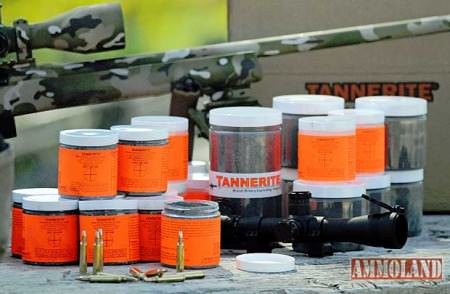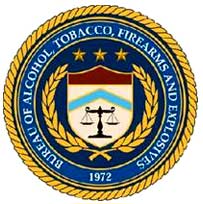
Washington, DC –-(Ammoland.com)- ATF has recently received inquiries about the applicability of the Federal explosives law to binary exploding targets.
The components of these binary targets (typically an oxidizer like ammonium nitrate and a fuel such as aluminum or another metal-based powder) are not separately listed on the List of Explosive Materials and do not meet the definition of “Explosives” in 27 CFR 555.11.
Therefore, ATF does not regulate the sale and distribution of these component chemicals, even when sold together in binary target “kits.”
However, when the binary components are combined, the resulting mixture is an explosive material subject to all requirements of 18 U.S.C. Chapter 40 and 27 CFR Part 555. Accordingly, all such exploding targets must be stored in an explosives storage magazine as prescribed in the regulations found in 27 CFR, Part 555, Subpart K—Storage, unless they are in the process of being used.
Further, mixing the binary components together constitutes manufacturing explosives. Persons manufacturing explosives for their own personal, non-business use only (e.g., personal target practice) are not required to have a Federal explosives license or permit. However, individuals or companies must obtain a Federal explosives manufacturing license if they intend to engage in the business of manufacturing explosives for sale or distribution, or for their own business use. Such business uses include manufacturing binary targets for demonstration or product testing purposes.
Licensed manufacturers of exploding targets are subject to Federal recordkeeping requirements and must comply with regulations concerning records of manufacture or acquisition, distribution, exportation, use, inventory, and daily summaries of magazine transactions found in 27 CFR, Part 555, Subpart G—Records and Reports.
In addition, a Federal explosives license or permit is required for the transport of explosive materials. Therefore, a person must obtain a Federal explosives license or permit if they mix binary exploding targets and subsequently transport them to a shooting range or to any other location.
For further information, please contact the Explosives Industry Programs Branch at eipb@atf.gov or 202-648-7120.
About ATF
In an effort to keep Federal firearms licensees (FFLs) abreast of changing firearms laws and regulations, the Bureau of Alcohol, Tobacco, Firearms and Explosives (ATF) will provide semiannual FFL Newsletters. Previous editions of the FFL Newsletters are available on ATF’s Web site (https://www.atf.gov)

